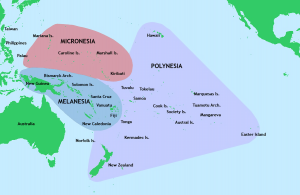This time last year, the Pacific regional political project faced the greatest crisis of its 50-year history when the five Micronesian members of the blue continent’s foremost intergovernmental organization, the Pacific Islands Forum (PIF), declared their intention to break away. The impetus for this fracture was a dispute over the election of PIF’s new secretary-general (SG), Henry Puna of the Cook Islands, who won out over the Micronesian-backed Gerald Zackios.
The Micronesian members held that it was their “turn” to have the SG position under a long-standing gentleman’s agreement that required the post to rotate between the Pacific’s three subregional groupings. Many of the leaders went to pains to emphasize that in the history of the SG position, only one Micronesian had held the office. By nominating and then electing Puna, Palau’s President Surangel Whipps Jr. stated that the South Pacific PIF members were “marginalizing” the North.
PIF rules specify that any member wishing to withdraw from the organization must give a year’s grace period between their declaration of intent to withdraw and their final decision to do so. During this period, a withdrawing member is given the opportunity to reverse course. As negotiations over the withdrawal roll on, it is worth looking back to see how events have developed throughout last year, what the Micronesian states’ intentions might be, and what we can expect going forward.
In March 2021, shortly after the Micronesian countries declared their intention to leave PIF, formal high-level talks, dubbed the Troika Plus Dialogue, were opened with the aim of resolving the dispute. The Pacific leaders chosen to represent PIF at the talks, including the leaders of Fiji, Papua New Guinea (PNG), and Samoa, issued an unreserved apology to the Micronesian leadership for the matter in April, indicating an acknowledgment that the North Pacific’s grievances were legitimate. Prominent Pacific leaders, including Prime Minister James Marape of PNG also indicated that they would be willing to formalize the rotation of the SG position. Such a change would be a major win for Micronesia given their small size as a voting bloc within PIF.
Nevertheless, the Micronesian bloc remained unmoved. When President David Panuelo of the Federated States of Micronesia (FSM) was asked in October if reviewing the SG electoral process was enough for the five states to reconsider their decision, he answered bluntly “no.” The aggrieved Micronesian leaders consistently maintained that they would only rejoin if Puna stepped down as SG, an unprecedented step within the history of the position.
The continued anger of the Micronesian states was perhaps most obvious at August’s PIF leaders’ summit, which also marked the organization’s 50th anniversary. Notably, only one of the Micronesian leaders showed up – Nauru’s Lionel Aingimea – and he quickly left before Puna’s scheduled speech.
As the year came to a close, the North Pacific states continued to signal that they would stand by their decision. At the Micronesian Presidents’ Summit (MPS) in September, all five leaders were unified in reiterating their intention to leave the Forum. It was at this same meeting that the major step was taken of announcing plans to form a permanent secretariat for the MPS.
However, a major spanner was thrown in the works in early February 2022 – with only days to go before the split was to be formalized – as the Micronesian leadership announced they were deferring their final decision to June. Despite previous indications to the contrary, the MPS announced that they were leaving the door open to rejoining the Forum if “specific substantive reforms” of the organization materialized.
Panuelo said on Monday that the withdrawal had been paused in the expectation that Puna will indeed step down in June. “It’s good to have the good faith and trust that these things will materialize,” he said, while reiterating that if the promise is not made then the withdrawal would continue.
Palau’s president confirmed the promised departure of Puna as well in comments to Australia’s ABC. “We finally got word … that the position of Micronesia will be honored and the SG will be changed and reforms will happen in the forum,” Whipps said.
Whilst this latest development indicates there are still hopes for a politically unified Pacific, the region isn’t out of the woods yet. Puna’s departure and other possible reforms have yet to be confirmed by the PIF or states outside the Micronesia bloc.
If negotiations break down in the coming months and the Micronesian states do withdraw, PIF will effectively revert to its pre-21st century identity as a purely South Pacific Forum. Such a move would weaken its influence and legitimacy, and further entrench the perceived split in identities between the north and south.
Additionally, even if the Micronesian states do ultimately decide to remain, the underlying issues behind the fracture will not disappear.
As such, regardless of the outcome, tough questions will have to be asked. What is the purpose of Pacific regionalism and the development of a strong regional identity? How can these goals be achieved with trust at an all-time low? As the Pacific, in the words of previous PIF Secretary-General Dame Meg Taylor, becomes more “crowded and complex,” these questions need answers urgently. If they are not forthcoming, the Pacific’s “sea of islands” will continue to drift farther apart.

































